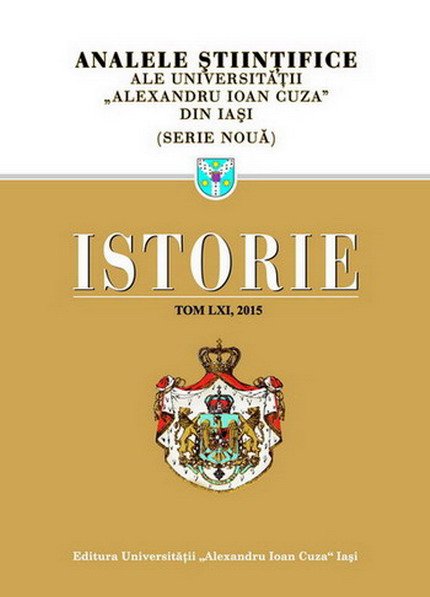TITO – un histrion pe „scena” comunismului
TITO – a histrion on the “stage” of communism
Author(s): Dan LazărSubject(s): History, Political history, Social history, Recent History (1900 till today), WW II and following years (1940 - 1949), Post-War period (1950 - 1989), History of Communism
Published by: Editura Universităţii »Alexandru Ioan Cuza« din Iaşi
Keywords: Tito; titoism; dictatorship; selfmanagement; propaganda; cult of personality; biography; posterity; nostalgia.
Summary/Abstract: Totalitarian thinking brings along the stringent need of the leader’s personality cult, while the official biography of the leader – grotesquely retouched – becomes the supreme form of power legitimization. For three decades and a half, Josip Broz Tito was the beneficiary of a consistent cult of personality, constructed arduously by both the “hagiographers” of the party and his own vanity, carefully cultivated by propaganda. The war years (legitimization as a military and a strategist), the period of opposition toward Stalin and Stalinism (consolidation as a political leader), as well as the decades of liberalization of Yugoslav society (consecration as father of the nation) represented the main pillars for Josip Broz Tito’s cult of personality and for the mythology of the “providential man”. The “grey” areas of this character’s life – such as manifest anti-Serbianism during his years as a young Cominternist, the violent communization of Yugoslavia by the Stalinist pattern and methods by 1948, as well as domestic escalations, or cosmopolite and unusual lifestyle – were carefully omitted by the propaganda.Tito’s cult of personality is based on two fundamental features ascribed to the character: omnipresence and omniscience. Josip Broz is everywhere, he knows everything, he has solutions for any problems, he utters memorable sentences, he promotes world peace, and he is the one who ensures Yugoslavian prosperity and prestige abroad. He left behind a leaderless country, because his incommensurable vanity and the servile character of his acolytes prevented him from assigning (even tacitly) a successor, according to totalitarian canon. Should he ever have an epitaph, one of the most suitable ones would be the words of Louis XIV, “The Sun King”: Après mois, le déluge... After me, the deluge...
Journal: Analele Ştiinţifice ale Universităţii »Alexandru Ioan Cuza« din Iaşi. Istorie
- Issue Year: 2015
- Issue No: 61
- Page Range: 559-568
- Page Count: 10
- Language: Romanian
- Content File-PDF

